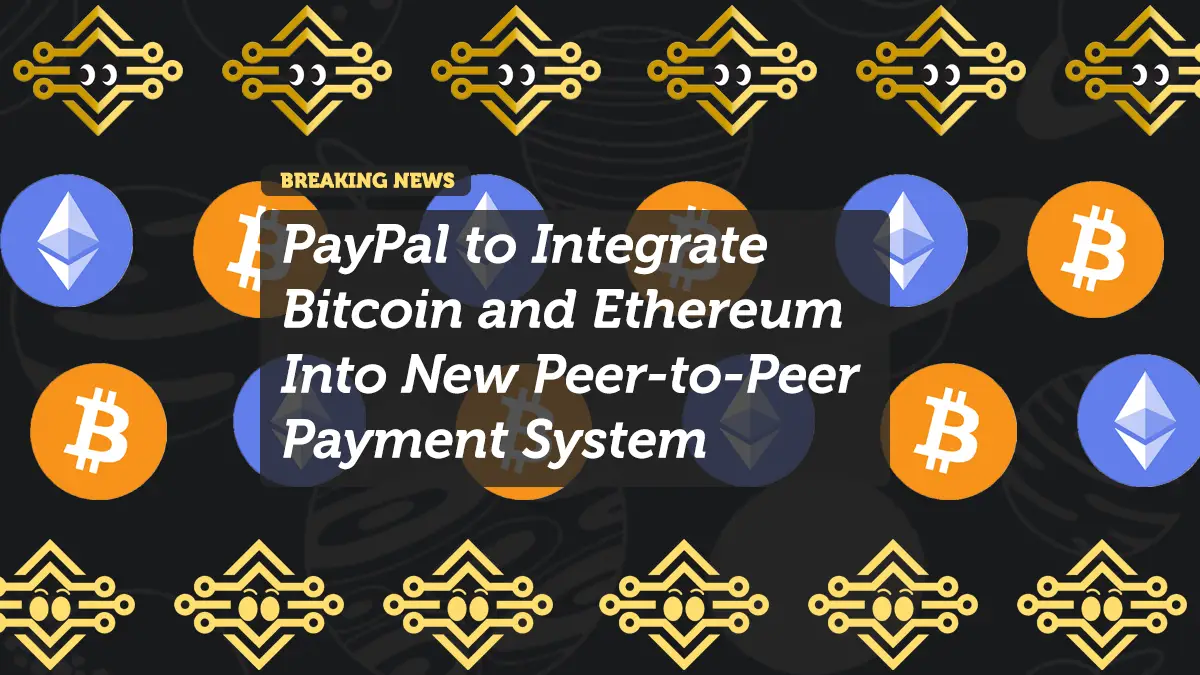
PayPal to Integrate Bitcoin and Ethereum Into New Peer-to-Peer Payment System
In a landmark move for fintech and digital assets, PayPal is preparing to roll out Bitcoin and Ethereum integration within its upcoming peer-to-peer (P2P) payment system. This development could significantly expand mainstream crypto adoption, making it easier than ever for millions of PayPal users to send and receive digital assets seamlessly.
PayPal’s Growing Push Into Crypto
PayPal has steadily expanded its crypto services since it first enabled Bitcoin buying and selling in 2020. The platform later added Ethereum and a handful of other tokens, allowing users to hold digital assets directly in their accounts.
This latest integration of PayPal Bitcoin and Ethereum into P2P payments marks the company’s strongest commitment yet. By embedding crypto into everyday transactions, PayPal is signaling its belief that Bitcoin and Ethereum aren’t just speculative assets, but practical tools for global payments.
How the New System Will Work
While details remain limited, early reports suggest PayPal’s system will allow:
- Instant peer-to-peer transfers in Bitcoin and Ethereum.
- Wallet-to-wallet interoperability, making it easier for users to send crypto outside PayPal’s ecosystem.
- Low-fee transactions, leveraging blockchain efficiency to rival traditional remittance services.
- Integration with PayPal’s stablecoin (PYUSD) to provide seamless fiat-crypto bridging.
This combination could position PayPal as one of the leading gateways between traditional finance and blockchain payments.
Why Bitcoin and Ethereum?
PayPal’s choice to prioritize Bitcoin and Ethereum is no surprise. Together, the two assets dominate the crypto market with:
- Bitcoin’s store-of-value appeal as “digital gold.”
- Ethereum’s utility as a smart contract platform powering DeFi, NFTs, and Web3 apps.
By integrating both, PayPal gives its users access to the most established and widely trusted digital assets.
Mainstream Implications
The PayPal Bitcoin and Ethereum integration could have wide-reaching effects:
- For users: More options for global transfers without reliance on banks.
- For merchants: Opportunities to accept crypto payments natively.
- For the industry: A significant step toward legitimizing cryptocurrencies in everyday finance.
PayPal’s move could also inspire other payment giants like Stripe, Visa, and Mastercard to accelerate their own blockchain initiatives.
What This Means for Crypto Adoption
Integrating Bitcoin and Ethereum into PayPal’s P2P payments could be a turning point. Instead of viewing crypto only as an investment, millions of users may start using it for daily transactions.
This shift could boost transaction volumes, enhance network effects for both BTC and ETH, and potentially reduce volatility as usage becomes more utility-driven.
Final Thoughts
PayPal’s plan to integrate Bitcoin and Ethereum into its P2P payment system marks another leap in the marriage of traditional fintech and crypto. If executed smoothly, this move could redefine how digital assets are used in daily commerce — accelerating the path toward mainstream adoption.














